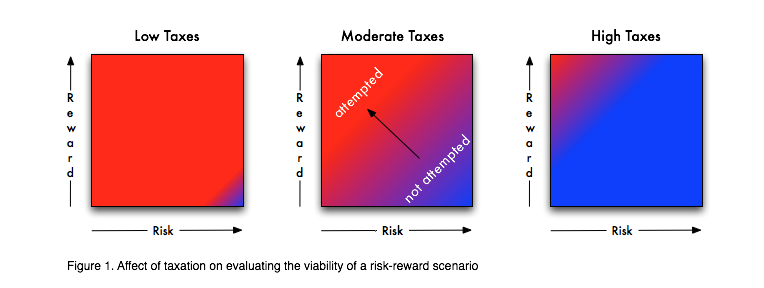This is rather scary. Using figures directly from the IRS we see than in 2008 (the latest year for which there are figures and which represents most accurately pre-recession income since the recession did not start until the very end of the year) the total personal income was $8.3 trillion. Further we see that the income for all corporations in 2008 was $0.9 trillion for a total of $9.2 trillion. Due to the down economy it would not be expected to be significantly greater than that value by 2013. Obama’s proposed 2013 budget is $3.8 trillion.
In other words the President believes it is entirely justified that the federal government alone consume $41 out of every $100 earned.
In other words the President believes it is entirely justified that the federal government alone consume $41 out of every $100 earned. When you add in state and local taxes then all government spending consumes at least half of all income from the entire economy. Half. And we aren’t even paying for all of it right now. The 2013 budget has a deficit equal to 100% of all corporate income ($0.9 trillion). Obviously corporations can’t be taxed at 100% so clearly the bulk of the eventual tax increases will be from the $8.3 trillion in personal income rather than from a paltry $0.9 trillion in corporate income. Since we can assume that Obama will continue the current tax policy whereby 50% of all Americans pay no income tax that means the income taxes on everyone else (people and corporations alike) would necessarily have to double to close the gap. Double. Have any other expenses in your life doubled in the last year? Didn’t think so. And for those that believe everything government does is so essential we (or rather “they”) must simply be willing to fork over one out of every two dollars that we earn then consider this: From the founding of this country until the passage of the 16th Amendment in 1913 the government got by just fine with no income tax and consuming only 3% of GDP as tax revenue from other sources. For 125 years somehow this country did not succumb to anarchy, chaos or mass starvation while operating on a mere 3% of GDP. Today 3% of GDP would be a budget of only $0.4 trillion (1/10th the current budget). That budget is entirely “doable” today if government was only concerned with its core focus of defense and judiciary. If 90% of that $0.4 trillion were devoted to national defense it would equal the defense budget we had in 2000. I don’t recall any outcries of America being woefully militarily vulnerable in 2000.
In closing I’d like to share a simple yet hard hitting illustration of this countries’ current budget problems. This has been going around the Internet recently and is really an excellent way to relate to the enormous sums of money discussed (numbers modified to reflect 2012 values).
US Budget 2012 (http://goo.gl/Ad9CD)
• United States Tax Revenue: $2,468,599,000,000
• Federal Budget: $3,795,547,000,000
• New Debt: $1,326,948,000,000
• National Debt: $15,400,000,000,000
• Recent budget cut: $38,500,000,000
Remove 8 zeros and pretend it’s a household budget.
• Annual family income: $24,686
• Money the family spent: $37,955
• New debt on credit card: $13,269
• Outstanding debt on credit card: $154,000
• Total budget cuts: $385
There are only two candidates proposing any kind of serious budget cuts to solve this nightmare. Ron Paul, Republican and Gary Johnson, Libertarian ($1 trillion and $1.3 trillion respectively in 1 year, not 10 years). We finally have a real opportunity to fix this. Let’s not blow it.
